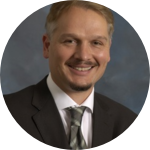About This Project
The goal of this project is to help children with Autism improve their teamwork skills through a suite of fun video games that focus on important social skills like synchronization, imitation, complementary action, turn taking and more. In a pilot experiment we will assess the ability of this suite of games, the Cooperation Station, to improve social skills in children diagnosed with Autism Spectrum Disorder.Ask the Scientists
Join The DiscussionWhat is the context of this research?
Everyday families set the table for dinner, siblings give each other high fives, and children chase one another around playgrounds.
What do idyllic scenes such as these have in common? They involve the ability to cooperate with others to achieve a common goal, an ability most of us take for granted.
Recent work has shown that we can study specific components of teamwork, like turn-taking, synchronization and action prediction using simple, video-game like tasks.
But could these tasks be used for something more meaningful? Could they be used to assess and even improve social skills in individuals with social impairments?
This project seeks to answer that exciting question.
What is the significance of this project?
The science of teamwork has advanced to the point that we are ready to take what we know and apply it to real-world problems.
We will use this suite of the Cooperation Station to measure and hopefully improve social skills in Autism.
In the future, we will record data from cooperating adults and use it to train social robots capable of working together with humans.
The creation of this suite of video games will lay the foundation for important future discoveries.
What are the goals of the project?
If funded, this money will be spent on producing the Cooperation Station, a suite of fun, colorful, theory-driven video games that require teamwork to play. This suite of games will be made available to parents, clinicians and researchers everywhere as it continues to evolve.
It will also fund a pilot study (feasibility / efficacy) in which 20 pairs of typically developing children and 20 pairs of children with Autism play the games that make up the Cooperation Station.
Budget
One of the hallmarks of Autism is a marked impairment in social functioning. For parents and caretakers of Autistic children, tools that effectively assess and train social skills can not come quickly enough.
If we meet our funding goal, this project will pay for programming expertise required to create a suite of teamwork games capable of assessing/teaching turn-taking, imitation, complementary action, action prediction and the formation of internal models of others.
New and existing (used in previously published experiments) games will be ported to UNITY. From here, we will be able to export them as web-based games that people can play from their own computers.
Any money raised above our goal will be used to develop more games that measure and encourage social skills.
The games in the Cooperation Station will serve as a 'touchstone' for researchers interested in measuring and training social skills in a variety of populations.
We hope that these games will serve as a 'stepping stone' to improvements in real-world social skills.
Meet the Team
Team Bio
I became interested in the science of teamwork during my postdoctoral. During this time I was part of an interdisciplinary (behavioral science, neuroscience, robotics) EU team whose goal was to create a social robot capable of building a model together with a human.As head of the Children's Perceptual Motor Development Lab, and a father of three kids that don't always work as an effective team, I am fascinated by the prospect of applying the science of teamwork to real-world problems like the rehabilitation of social impairments and the creation of more cooperative social robots.
I also love programming (along with Tennis, YMCA Bootcamp, all-too-rare dates with my wife, MTG, and making kids of all ages laugh ;)
*Funding Gets you Rewards:
$50 or more will earn an Autism Bracelet shown HERE.
$100 will earn access to all the games and data collected.
$500 will earn official acknowledgment on all publications resulting from this research.
Additional Information
Here is are some photos of some of the games that currently make up the Cooperation Station. Note that children will be able to input their pictures, which will be applied to their 'avatars'.Virtual Tag Task:

Virtual Lifting Task

Virtual Navigation Task:

Virtual Turn-Taking Task:

Here is my own family!

Here is my work family (from the video)!

Here is a link to a short video on the Teamwork Camps I run at my local YMCA!

Link to Teamwork Camp Video
Project Backers
- 14Backers
- 9%Funded
- $764Total Donations
- $54.57Average Donation
